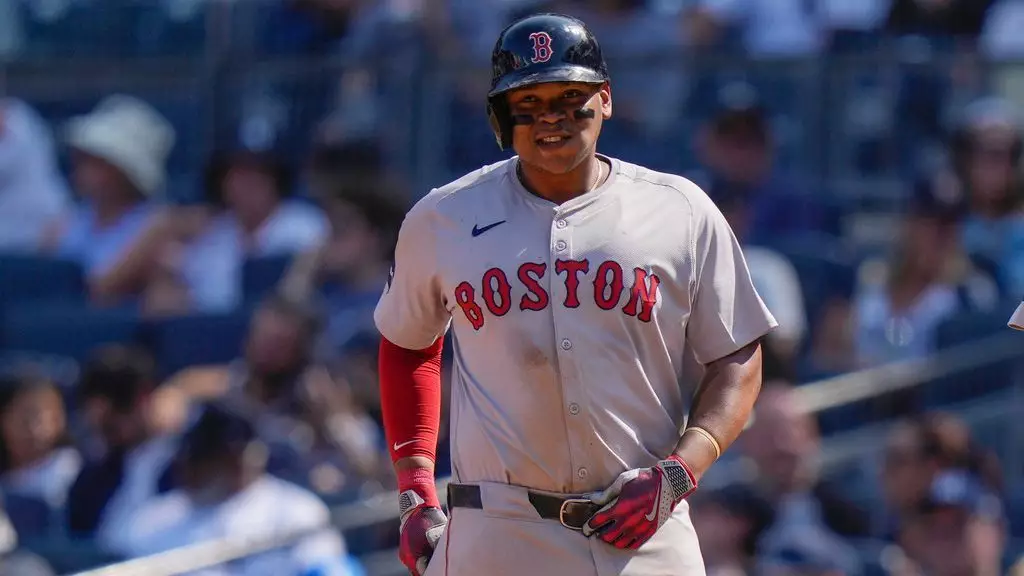In the whimsical and unpredictable world of baseball, players are often asked to wear multiple hats. For Rafael Devers, however, the notion of versatility hits a nerve. The Boston Red Sox’s designated hitter has found himself at a crossroads in his career, primarily due to injuries within the team. Following Triston Casas’ unfortunate season-ending injury, the organization suggested Devers step into a role he’s never played professionally: first base. Yet, the three-time All-Star stands resolute, affirming his commitment to the DH position and rejecting the idea of switching roles again.
The Weight of Expectations
When the Red Sox reached out to Devers regarding the first base position, they were not merely proposing a simple position change; they were presenting a significant shift in strategy for a player they signed to a specific role. During spring training, Devers had already navigated a major transition by moving from third base to designated hitter after the acquisition of Alex Bregman. Fans and analysts alike often overlook how these changes affect a player’s performance and psychology. Devers expresses frustration, articulating that he doesn’t just want to be a player who can be “plugged in” wherever needed. He wants to focus his craft on one singular role—one he has come to embrace as his own.
The Experience Factor
Devers pointedly highlights his conversations with Craig Breslow, the chief baseball officer for the Red Sox. With a background in professional play, Breslow should appreciate the nuances of switching positions—from the physical demands to the mental adjustments involved. Devers argues that asking him to shift once more seems counterproductive, especially given that he has already set expectations for himself following the Red Sox’s earlier decisions. His performance as a DH has shown promise, leading him to feel that any deviation from that role could harm not only his game but also the Red Sox’s lineup.
Finding a Solution in the Market
It’s a bold stance for Devers to suggest that the Red Sox should actively seek external talent rather than reliant on a player reluctant to adapt. He emphasizes that the organization should pursue a legitimate first baseman rather than tugging him into an unfamiliar territory. This insight can be viewed critically; it suggests a leadership quality—understanding one’s limitations and suggesting focus where it can yield the best results. Devers’ vision would bolster the lineup if the front office navigates the trade market effectively. Yet, this perspective carries risk; asking management to seek additional players necessitates trusting them to make sound decisions.
Stubbornness or Conviction?
Devers acknowledges the label of being “hard-headed,” but could this stubbornness actually reveal conviction? Athletes in high-pressure roles often find it difficult to maintain their value amidst organizational changes. For Devers, this isn’t just about being obstinate—it’s about commitment to standards of excellence. He has proven his worth as a designated hitter, and insisting on not stretching beyond that role may ultimately benefit not just him but the entire team. It’s easy to dismiss the internal battles of an athlete, but on a deeper level, Devers’ refusal to budge illustrates a larger narrative about player identity and boundaries.
The Bigger Picture
As the Red Sox coast through a challenging season, the internal dynamics surrounding players like Devers are worth observing. The decisions made today will shape the team’s future—not just in terms of immediate performance, but also regarding player morale. By standing firm in his position as a designated hitter, Devers could be echoing a sentiment that many players silently carry: the importance of defining one’s role in the grand scheme of an organization. As he pushes back against the calculated yet often haphazard management of player positions in MLB, Devers becomes a beacon of assertiveness in a landscape where flexibility is often forced upon athletes.

